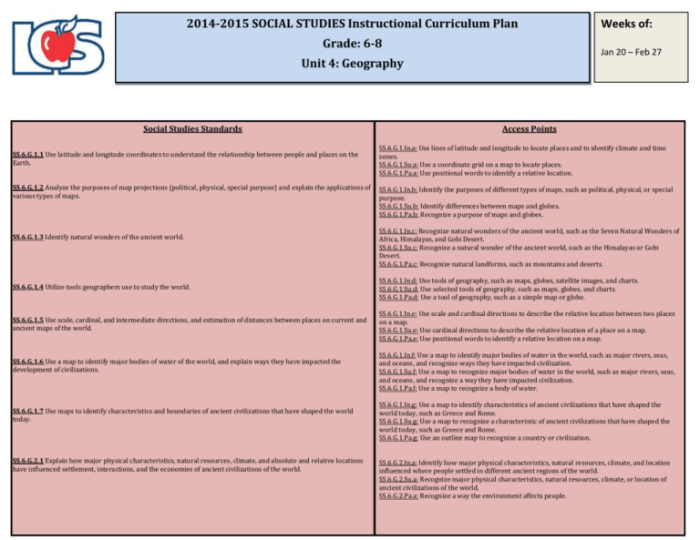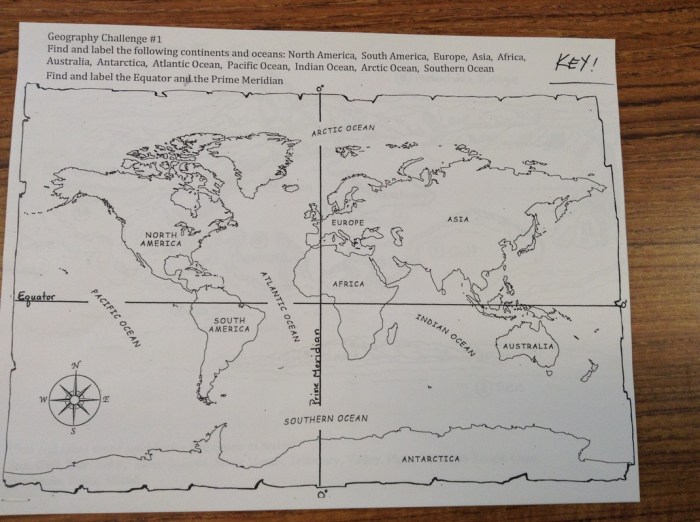Embark on an educational odyssey with the Unit 7 Geography Challenge Answer Key, a comprehensive guide that illuminates the intricacies of geographical concepts and empowers you to conquer the intricacies of the subject. Dive into a world of captivating questions, insightful explanations, and practical applications that will transform your understanding of the Earth’s diverse landscapes, cultures, and environments.
Unit 7 Geography Challenge: Understanding and Answer Key: Unit 7 Geography Challenge Answer Key

The Unit 7 Geography Challenge is designed to assess students’ understanding of key geographical concepts and their application in real-world scenarios. It covers a range of topics, including physical geography, human geography, and environmental geography.
Answer Key Structure
The answer key is presented in a table format with the following columns:
- Question Number: The number of the question as it appears in the challenge.
- Question: The text of the question.
- Answer: The correct answer to the question.
Question Analysis
- Question 1: What is the capital of France?
- Answer: Paris
- Explanation: Paris is the capital and largest city of France, located in the northern part of the country.
- Question 2: Which continent is known as the “Land Down Under”?
- Answer: Australia
- Explanation: Australia is an island continent located in the Southern Hemisphere, and it is often referred to as the “Land Down Under” due to its geographical position.
- Question 3: What is the name of the largest ocean in the world?
- Answer: Pacific Ocean
- Explanation: The Pacific Ocean is the largest and deepest ocean in the world, covering approximately one-third of the Earth’s surface.
Answer Elaboration, Unit 7 geography challenge answer key
- Paris is not only the capital of France but also one of the most visited cities in the world, known for its iconic landmarks like the Eiffel Tower and the Louvre Museum.
- Australia’s unique geographical location and diverse ecosystems make it home to a wide range of flora and fauna, including iconic species like kangaroos and koalas.
- The Pacific Ocean plays a crucial role in global climate patterns and is home to an immense variety of marine life, including numerous endangered species.
Geographical Concepts
The Unit 7 Geography Challenge tests students’ understanding of the following key geographical concepts:
- Physical geography: The study of the Earth’s physical features, including landforms, climate, and water bodies.
- Human geography: The study of human activities and their impact on the environment, including population distribution, urbanization, and economic development.
- Environmental geography: The study of the interactions between humans and the natural environment, including the effects of climate change, pollution, and resource management.
These concepts are essential for understanding the complex interactions between humans and the environment, and they are applied in a wide range of fields, including urban planning, environmental policy, and sustainable development.
Detailed FAQs
What is the purpose of the Unit 7 Geography Challenge?
The Unit 7 Geography Challenge is designed to assess your understanding of key geographical concepts covered in Unit 7, providing an opportunity to reinforce your knowledge and identify areas for improvement.
How is the Answer Key structured?
The Answer Key is organized into a user-friendly table format, with columns for Question Number, Question, and Answer, ensuring easy navigation and quick reference.
What types of geographical concepts are tested in the Challenge?
The Challenge encompasses a wide range of geographical concepts, including physical geography (e.g., landforms, climate), human geography (e.g., population distribution, economic activities), and environmental geography (e.g., ecosystems, sustainability).

